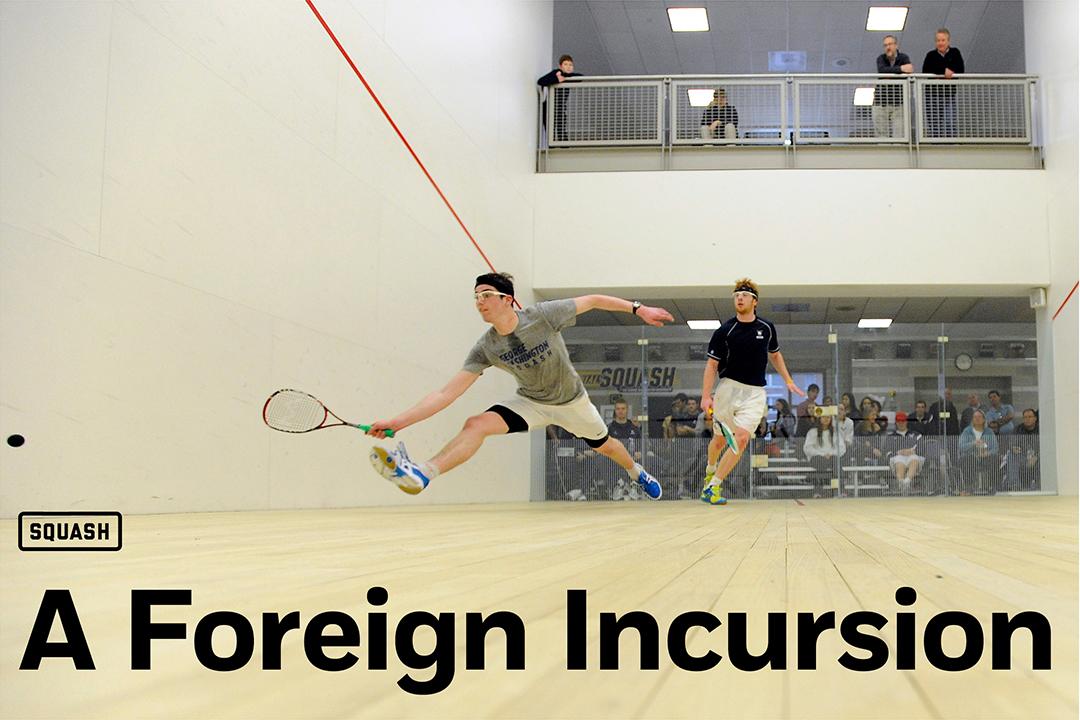A Foreign Incursion
Dublin native Oisin Logan, left, is one of five international players on the men's squash team. (GW Athletics Communications)
International students fuel GW's nationally ranked squash programs.
By Matthew Stoss
Squash, the racket sport Americans know mostly from health clubs, is bigger overseas than in the United States. Across the Atlantic, particularly in Egypt, the United Kingdom and countries formerly under British rule, there are professional leagues and big tournaments.
But if a player doesn't go pro and still wants to (and can) play at a high level, the U.S. college athletic system is their best option. As a result, college squash in the states is dominated by international players, and the best team's rosters are filled with them.
"The standards here are a lot higher," says Oisin Logan, an Irish sophomore on GW's men's team. "All the internationals come here if they're not going pro and they want to keep playing squash."
Five of the 12 GW men's players are from foreign countries. Mr. Logan is from Dublin and a veteran of Ireland's national team.
Last year he went 14-6, leading the Colonials in wins en route to being named the team's most valuable player. He plays a patient, traditional style predicated on forcing his opponent to make a mistake.
On the women's side, five of the 13 players are from abroad, led by Gabby Porras, a senior from Bogota, Colombia.
Among coach Wendy Lawrence's all-time most-coveted recruits, Ms. Porras—thanks to a more aggressive style—has been named a second-team All-American three times by the College Squash Association, the sport's governing body that rules an agglomeration of about 140 men's and women's Division I, II, III and club teams that compete as equals.
"The best programs—the strongest programs for junior squash—are in other countries," says Ms. Lawrence, who's coached the men since 2007 and the women since 2010 and built two nationally ranked programs. "The United States is strong, but in other countries it's similar to soccer, where a lot of the best people don't go on to college."
They go pro. That leaves a lot of very good players with nowhere to go but to the United States, where squash is popular in small circles.
"Here, I feel like some people will know and they will love the sport," says Ms. Porras, who went 11-4 in 2014-15, including 9-1 in her final 10 matches. "Other people will have no idea and think it's a vegetable."
More Athletics News
Fashion Forward
New fight-song themed uniform deepens the Colonials' closet.
The Tao of Scoring a Game-Winning Goal
Junior forward Mackenzie Cowley overcame a midseason scoring funk to net the game winning goal in each of the Colonials’ final three games.
A Place of Community: The Charles Smith Center at 40
Alumni, former coaches and others look back at the moments that mattered.





